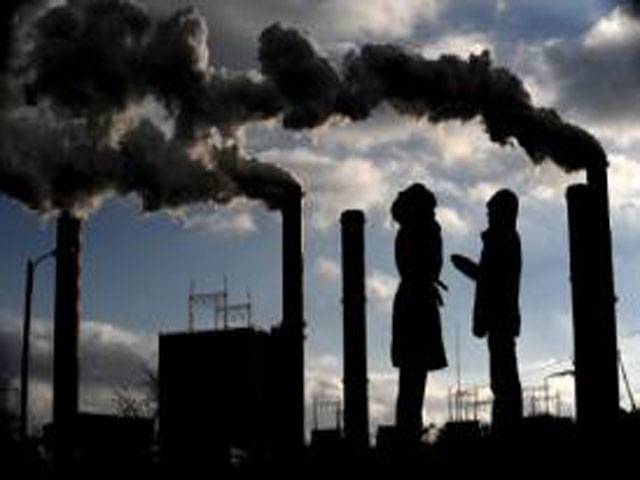UNITED NATIONS - The coal industry needs to change rapidly to help prevent global warming by leaving most of the fuel in the ground and closing the least efficient power plants, the top climate official at the United Nations said.
Christiana Figueres, executive secretary of the UN Framework Convention on Climate Change, said fumes from burning the fossil fuel are loading the atmosphere with greenhouse gases, competing for water resources and harming public health.
“Coal must change rapidly and dramatically for everyone’s sake,” Figueres said at a coal industry conference Monday in Warsaw, the Polish capital, which is also hosting UN global warming talks.
“If we continue to meet energy needs as we have in the past, we will overshoot the internationally agreed goal to limit warming to less than 2 degrees Celsius.”
Coal’s role in fueling the world economy has moved into the focus at the UN talks after a study by UN scientists indicated that humans have already burned half the fossil fuels they can before risking dangerous changes to the climate. At best, emissions pledges for 2020 would lead to greenhouse gas output about 18 percent above the level needed to keep global temperature increases to 2 degrees Celsius since the industrial revolution, according to the UN Environment Program.
“This insight becomes dramatic if you compare this carbon budget with the carbon still underground in the form of coal, oil and gas,” Ottmar Edenhofer, chief economist at the Potsdam Institute for Climate Impact Research in Germany, said in an interview. “There is much more carbon underground than the amount which can still be released if dangerous climate change should be avoided.”
Poland, which is hosting the talks involving 190 nations, has Europe’s largest coal reserves and is the European Union’s most-dependent country on the fuel. It organised a conference on coal to coincide with the UN conference.
Figueres, whose role is to help guide the discussions about reining in fossil fuel emissions, urged coal executives to outfit new plants with technology to capture and store CO2.
The coal industry seeks to increase power plant efficiency to 40 percent from the current 33 percent to help reduce emissions, Milton Catelin, head of the World Coal Association, a lobby group, said today at the same event.
Achieving that target may cut global CO2 emissions by 2 billion metric tons, equivalent to the emissions of India, Catelin said. “We can’t turn a blind eye on climate impact of our industry,” he said.
Germany, Europe’s biggest energy market, is in its largest new-build programme for hard coal stations since 1998. Ten new plants with a combined capacity of 7,985 megawatts are scheduled to start producing in the next two years, according to information from German grid regulator Bundesnetzagentur and operators.
“Unabated coal represents the single biggest threat to climate stability,” U.K. Climate Change Minister Gregory Barker said today in an interview. While “it’s imperative” to scale up renewables and energy efficiency, “in the next two decades it is gas that offers the most immediate and economic replacement to coal,” he said.
, describing the fuel as a “stepping stone” to a lower-carbon future.
The global energy mix “has to tilt much more to non-fossil sources” if climate change is to be curbed, US Special Envoy for Climate Change Todd Stern told reporters in Warsaw.
Carbon capture and storage can help reduce emissions from coal-fired power generation, he said.
“The world runs significantly on fossil fuels right now, and that’s not going to change overnight,” Stern said.
Either way, coal companies should expect tighter government regulation, growing difficulties to secure financing and falling public acceptance for new projects, Figueres said.
“The coal industry faces a business continuation risk that you cannot afford to ignore,” she said. Companies should instead diversify into renewable-energy projects to reduce risk, she said.
Saturday, April 20, 2024
UN official warns of coal risks

Freedom Flotilla prepares for humanitarian aid delivery to Gaza
9:14 AM | April 20, 2024
22 suspects arrested
April 20, 2024
Policitising Tragedy
April 20, 2024
Tehran to Rafah
April 20, 2024
A New Leaf
April 20, 2024
A Tense Neighbourhood
April 19, 2024
Dubai Underwater
April 19, 2024
Dangers of Deepfakes
April 20, 2024
Feudalism
April 20, 2024
Kite tragedy
April 19, 2024
Discipline dilemma
April 19, 2024
Urgent plea
April 19, 2024
ePaper - Nawaiwaqt
Advertisement
Nawaiwaqt Group | Copyright © 2024





